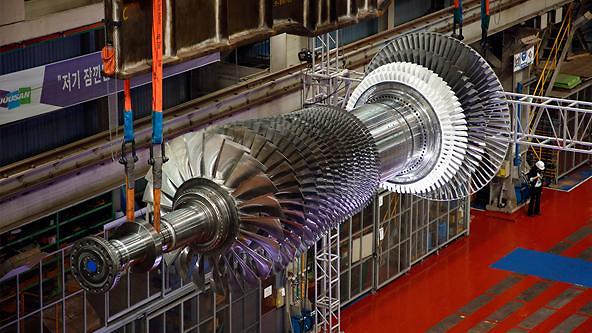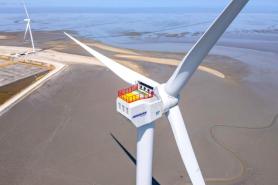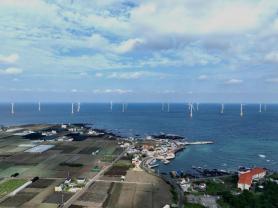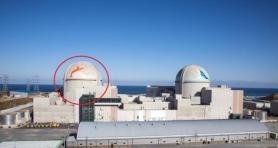
[Courtesy of Doosan Heavy Industries]
SEOUL -- To speed up the localization of core technologies, Doosan Heavy Industries & Construction, a key contractor in South Korea's energy industry, joined forces with a domestic electric energy provider to develop a Korean-style combined cycle power plant model and foster an industry ecosystem based on home-made gas turbines.
A combined-cycle power plant is an assembly of heat engines that work in tandem from the same source of heat, converting it into mechanical energy. The most common type is a combined cycle gas turbine plant. Combining two or more thermodynamic cycles improves overall efficiency, which reduces fuel costs.
Doosan Heavy said in a statement that it would work together with Korea Western Power to explore overseas markets and support the technology development of domestic gas turbine-related companies. The power company will demonstrate Doosan Heavy's gas turbine at a 500MW cogeneration power plant to be built in Gimpo, a western satellite city of Seoul. The plant will use natural gas as a heat source.
In September 2019, Doosan Heavy unveiled DGT6-300H S1, a gas turbine with a combined power output of 270 MW, that was developed in a national project involving engineers from dozens of private and state research groups.
Policymakers have described independence in domestic gas turbine technology as a very important task in terms of energy security. All 149 gas turbines operating at power plants in South Korea are from overseas companies. South Korea's energy roadmap calls for the gradual closure of power plants using fossil fuels.
Gas turbines, which can utilize a variety of fuels, including natural gas, fuel oils and synthetic fuels, have become one of the most widely-used power generating technologies because they reduce the emission of fine dust and other air pollutants such as nitrogen oxides.
Copyright ⓒ Aju Press All rights reserved.



